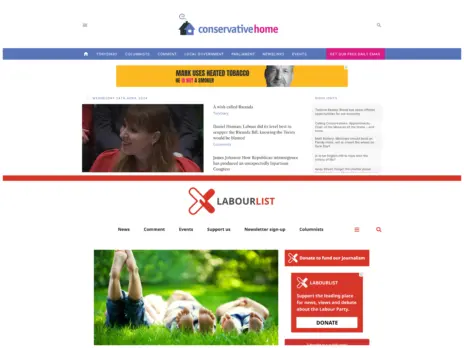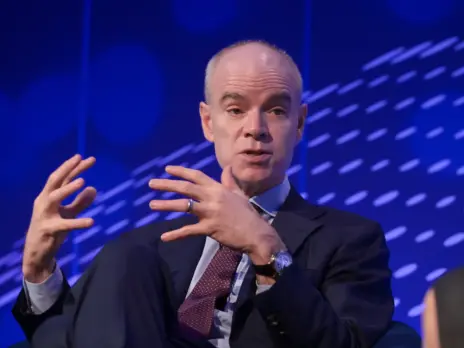
An undercover investigation into Sam Allardyce by the Telegraph, which led to his dismissal as England manager after only one match, was in the public interest, the Independent Press Standards Organisation has ruled.
However, the press regulator has upheld an accuracy complaint against the title by Allardyce and two of his associates over three “significant inaccuracies”, one of which had already been corrected, in its extensive coverage following the sting.
It has ordered a page two correction to appear in the Daily Telegraph and for corrections to appear at the top of relevant online articles.
Allardyce, his “financial adviser” Shane Moloney, and his agent Mark Curtis complained to IPSO in relation to 15 articles published by the Telegraph over the course of six days in September 2016, both online and in print.
The coverage included news reports and comment pieces, which formed part of the newspaper’s ten-month “Football for Sale” campaign – described as an investigation into “corruption in English football”.
The Telegraph carried out an undercover sting on Allardyce, set up in November 2015, filming him covertly on two separate occasions while posing as members of a fictitious sports representation and management business.
The three men complained to IPSO under Clause 1 (accuracy) and Clause 10 (clandestine devices and subterfuge) of the Editors’ Code of Practice – the standards to which all IPSO members are held.
IPSO upheld only the accuracy complaint after identifying “three significant inaccuracies” that represented a breach of Clause 1 and required correction.
The first Telegraph article, published on 26 September, broke the story that the newspaper had conducted an undercover investigation into Allardyce, the then recently appointed manager of the England football team.
It reported that before Allardyce had started his role as manager of the England football team, which had a salary of £3m a year, he had been “eager to explore ways of earning even more”.
It said that in August 2016, less than a month after his appointment, Allardyce, Moloney and Curtis had attended a meeting with representatives of a fictitious sports management company, created by the newspaper, who said they wished to employ Allardyce as a speaker.
Said IPSO: “The article reported that Allardyce had seemed ‘unperturbed by the fact that the firm was proposing third party ownership of players, in contravention of Football Association and FIFA rules’, and that 20 minutes into the meeting, he had agreed, in principle, to undertake speaking engagements for a company ‘he had never heard of’ for a fee of £400,000 a year.”
The article also described a second meeting in September 2016, attended by Allardyce and the football agent, in which Allardyce had “stressed” that before he could sign a contract to carry out the speaking engagements, he would have to “clear it with the FA”.
It said the agent had then “turned to the subject of paying people to help secure business” to which Allardyce can be seen in undercover footage to put a napkin on his head and say: “I haven’t heard that, you stupid man. What are you talking about? You idiot. You can have that conversation when I’m not here.”
In a second article, the newspaper discussed the potential conflict of interest that an agreement between Allardyce and a sports management company would create.
It said that during the meeting with the fictitious firm, Allardyce had “repeatedly” said that he would have to clear any deal with the FA, but it noted that despite this, he had held two meetings with the firm’s representatives lasting a total of four hours and he had gone into detail about when he would be able to fly abroad to attend the engagements.
It said that he had held the meetings “despite being aware that the firm… was interested in making money out of third party ownership of players”.
Both of these online articles were published in the Daily Telegraph newspaper the following day, on 27 September, alongside a third: a splash headlined: “England manager for sale.”
It reported on the discussions that the complainants had had with representatives from the fictitious company.
It said “unbeknown to Allardyce, the businessmen were undercover reporters and he was being filmed as part of a ten-month Telegraph investigation that separately unearthed widespread evidence of bribery and corruption in British football”.
It reported that Allardyce had said that it was “not a problem” to bypass FA rules, that certain agents were “doing it all the time”, and that “you can still get around it. I mean obviously the big money’s here”.
The article said Allardyce “now faces questions about his judgement just weeks after his first and so far only match in charge of the national side”.
Allardyce was later sacked as England manager by UK footballing body the Football Association, having overseen only one away match in charge.
The complainants said that the level of subterfuge employed by the newspaper in its “Football for Sale” investigation had been unjustified and that it had published its findings in an inaccurate and misleading way.
They denied any prior wrongdoing which could have justified the subterfuge.
They said that, taken as a whole, and particularly in the context of the “Football for Sale” investigation, the coverage suggested that they were guilty of wrongdoing amounting to corruption and that Allardyce had been caught in a “corruption case”.
This was inaccurate, they said, as the comments they had made during the meetings with the undercover reporters, which were the alleged basis for these claims, had not indicated any corruption.
The complainants said that it was clear from the footage of the meetings that Allardyce had emphasised that any deal with the firm would need to be cleared by the FA.
They said the newspaper had inaccurately reported that Allardyce’s business meetings “could fall foul” of FIFA’s code of ethics, and that Allardyce and Curtis had “attempted to flout the rules”.
They said it was not against the rules for Allardyce to attend the meetings set up by the newspaper.
The complainants said there was no evidence to support the assertion made in one article that Allardyce had “admitted he was ‘a fool’ to have negotiated a £400,000 speaking engagement deal and had advised a group of businessmen how to ‘get around’ the FA’s transfer rules”.
He had not agreed to a £400,000 deal, or said that he was a fool to do so, and he had not said that he had done this to help a friend.
The complainants said that the newspaper’s public interest justification was insufficient to justify its intrusive methods.
It had provided no evidence to suggest that Allardyce had previously treated commercial opportunities with a lack of caution, and so the basis for its suspicion appeared to be speculative.
The newspaper said it had been essential for it to use subterfuge to carry out its investigation into corruption in football, “which was clearly of significant public interest”.
It said football was a major industry, estimated to have a value of more than £5bn a year – and that the “integrity of the game was vital to those who worked in it, as well as to its thousands of spectators and sponsors”.
It said its broader investigation had yielded numerous stories in the public interest.
The newspaper said it had taken the decision to investigate Allardyce after “several confidential sources”, who it had believed to be credible and reliable, had made “direct and specific allegations of serious misconduct against a closed group of agents, former players turned agents, and current and former managers, including Allardyce”, according to the IPSO ruling.
It said it was clear that few – if any – of its sources would be prepared to speak on the record.
“In light of the information the newspaper had gathered, a senior editorial executive and the deputy editor authorised an undercover investigation to appeal to the alleged perpetrators’ interest in financial gain,” said IPSO.
As the sources’ information concerned criminal activity within this “closed group”, the alleged perpetrators would not have shown their hand if approached directly, the paper said.
“It was decided that a sports representation and management business would be a plausible and suitable cover story, as it would allow those being investigated to refuse to engage if they felt uncomfortable about the topics being discussed,” IPSO said.
The sting was set up in November 2015, with the approval of a senior editorial executive. The newspaper provided dated emails, demonstrating the editorial consideration given to the decision to engage in subterfuge.
The newspaper said that in spring 2015, the head of the investigations unit received confidential information alleging serious misconduct on behalf of football managers and agents.
It was unable to disclose the identity of the source of the initial tip-off, or to give clear detail regarding the information he had provided in case it identified him, but his professional qualifications and reputation were such that the newspaper had considered that his testimony was credible.
This source had also made serious allegations concerning Allardyce’s conduct, the ruling claims.
In spring and summer 2015, several confidential sources also made direct and specific allegations against Allardyce – these allegations were later repeated and also related to Curtis.
The newspaper said that the subterfuge had revealed information of significant public interest.
“As the manager of the England football team, Allardyce was a figurehead for the sport, who was held to a higher standard than others,” it said. “His employer, the FA, was the body responsible for setting, upholding and policing standards in the game.”
IPSO’s Complaints Committee said it was “satisfied that the level of subterfuge used in the investigation was proportionate to the public interest identified”.
It said: “The newspaper’s investigation had not uncovered evidence that the complainants had acted illegally, and during the meetings, they had made clear that any commercial proposal would need to be clearly defined and approved by the FA before it was agreed.
“However, the newspaper had uncovered evidence which could reasonably be considered to demonstrate sufficiently serious impropriety on the part of the complainants to justify publication.
“In particular, whilst it could not be demonstrated that Mr Allardyce had broken any FA rules, he appeared to show disregard for them and had spoken disrespectfully about them to people he had only just met.
“In the first meeting, he had explained a model which could reasonably be understood to result in a third party benefitting from a player’s transfer, albeit that it was denied by the complainants that the model had the intention of achieving any improper benefit.
“He had also said that the FA ban on third party ownership was ‘ridiculous’. The newspaper had also gathered evidence that he was willing to negotiate speaker fees with a company that was explicitly interested in third party ownership of players.
“During the second meeting, he had witnessed a conversation in which a football agent appeared to suggest that an unauthorised payment could be made to a player.
“Although, later in the conversation, Mr Allardyce had emphasised that such a suggestion was against the rules, he had first said: ‘You can have that conversation when I’m not here’ with a napkin placed jokingly over his head.”
The Telegraph said that it had accused Allardyce of “greed, lack of judgement and conflict of interest – at no point had it accused him of corruption or of breaking the law”.
It had also made clear throughout the coverage that Allardyce had repeatedly said during the meetings that any deal would have to be approved by the FA.
The newspaper said that contrary to the complainants’ claims, Allardyce had not advised on how third-party ownership rules could be worked around in regions in which he believed it was permitted.
It said it was “clear that he had intended for his proposal to operate in the UK from his comment that ‘obviously the big money’s here’”.
The newspaper noted that during the first meeting, Curtis had said that Allardyce’s relationship with the company could “grow down the line”, and it considered that such an open proposition for future engagement created a current conflict of interest.
It also argued that meeting the firm with a football agent also gave rise to potential conflicts of interest. It denied that Allardyce’s assertion that any deal would require clearance from the FA remedied the lack of judgement demonstrated by the complainants’ attendance at the meeting.
IPSO said the complainants had identified three significant inaccuracies that represented a breach of Clause 1, which required correction.
The Telegraph had already offered to correct one of these errors – an assertion that Allardyce had “briefed on breaking the rules”. As such, there was no breach of Clause 1 on this point.
However, it had not offered to correct a report that Allardyce had suggested a method by which a third party could benefit from “sell on fees”.
It had also not offered to correct an assertion that he had entered negotiations “to provide insights and guidance over how [the firm] could get around regulations banning third party ownership of players”.
Its failure to promptly correct these points represented was a breach of Clause 1, IPSO said.
The correction must also appear at the top of online news articles to which it relates, the regulator said.
In a statement, Allardyce said he was “grateful” IPSO had found these “serious and false allegations” were inaccurate, but criticised the nearly two years it has taken to reach what he called a “flawed” decision.
He claimed IPSO had produced three versions of their decision, amending their findings on two separate occasions to get a final decision.
He added: “IPSO also found that the articles made no accusation of corruption against me and the Telegraph confirmed it made no such allegation – though some readers would have thought otherwise.”
Picture: Reuters/Paul Childs
Email pged@pressgazette.co.uk to point out mistakes, provide story tips or send in a letter for publication on our "Letters Page" blog






